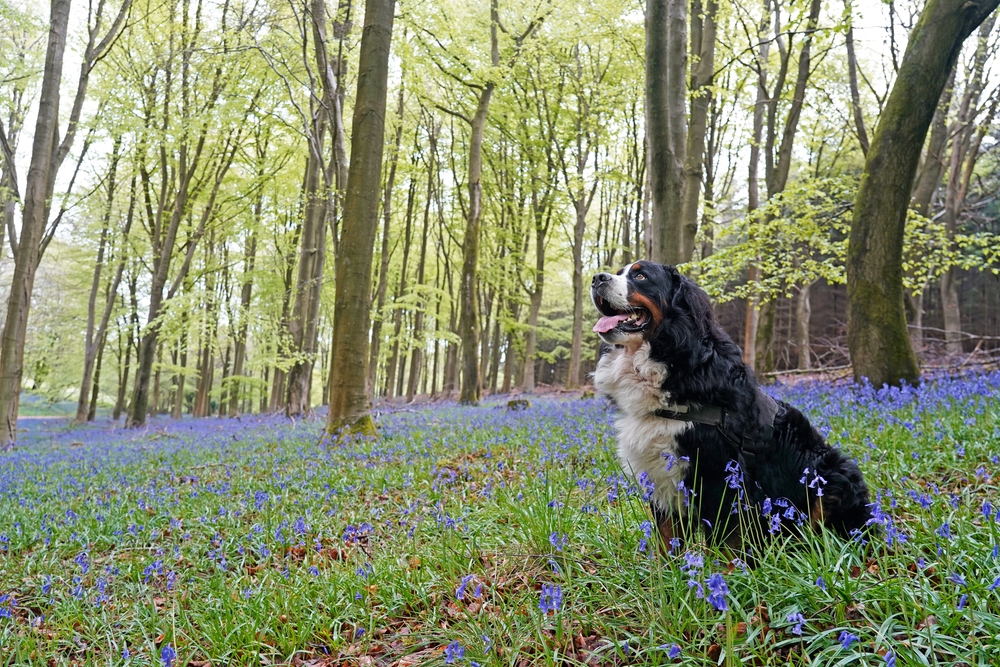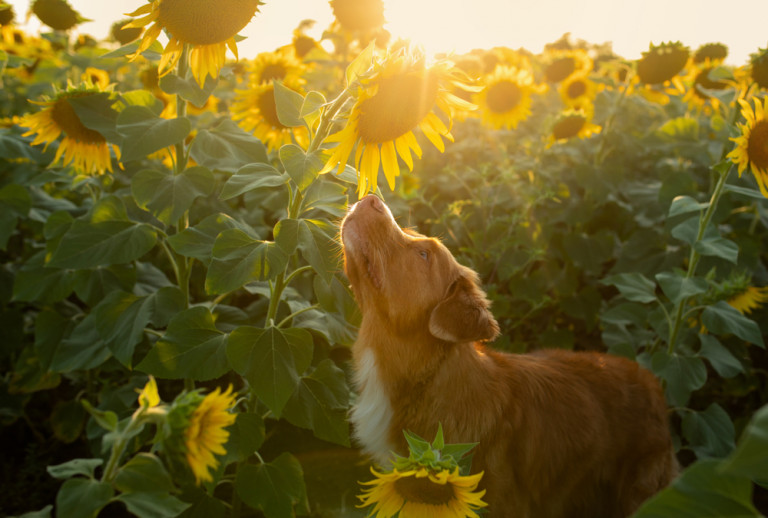Even for these non-toxic plants, though, too much of a good thing can still cause stomach upset. If you are worried about something your dog has eaten, or if you’re observing diarrhoea, vomiting or other troubling clinical signs, call your daytime vet, Video Vets Now or your local emergency clinic.

Dog owners may worry about which plants can harm their dogs, and there are some common toxic garden plants that dogs should steer clear of. But it is common for some dogs to eat plants occasionally, and if you’re looking to create a dog-safe garden, the plants below shouldn’t be cause for alarm.

A few dog-safe garden plants
- Cleavers (also known as sticky willy): These weeds are a common sight at the edges of parks and gardens in the spring. The good news is that cleavers are not toxic for dogs in small amounts. In fact, dogs will often gravitate towards the tender shoots.
- Dill: this common herb is useful in the kitchen and, more importantly, shouldn’t cause any issues for your dog. Other herbs that are generally safe in small amounts are rosemary, thyme, sage, and curly parsley.
- Roses: roses are more commonly grown for their looks than their taste in UK gardens, but their flavouring adds a floral note to sweeties like Turkish delight. No wonder dogs may like the taste too! Just make sure they mind the thorns.
- Marigolds: these brightly coloured flowers are popular with gardeners because of their looks and because they can ward off insect pests when planted around the edge of gardens. But unlike bugs, dogs have nothing to fear should they happen to nibble a petal or two. Other dog-safe blooms include nasturtiums, petunias, and begonias.
- Catnip: cat owners will know that many felines enjoy the stimulating influences of catnip. It is generally a safe plant for dogs to be around as well, though they won’t usually be attracted to it to the degree cats are. Interestingly, in contrast to its animating effect on cats, catnip tends to have a mildly calming effect on dogs.
- Lavender: another plant known for its relaxing properties, lavender’s calming aroma can potentially be appreciated by our canine friends too. Even if your dog doesn’t appreciate the spa-like atmosphere, the plant is non-toxic.
- Sunflowers: these cheerful flowers look lovely in the garden, their seeds feed the birds that visit your garden in the autumn, and they’re safe for dogs – what’s not to like?
Not sure if the plant your dog ate is safe?
Video chat with a vet within minutes.

